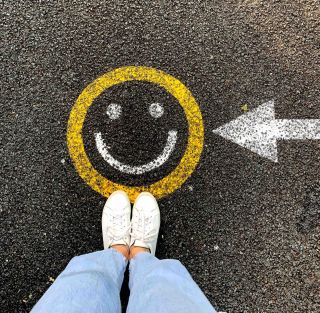Career
It Beats the Alternative: 5 Things to Wake Up Happy To
Starting the day in a positive way can work wonders.
Posted March 28, 2023 Reviewed by Ekua Hagan
Key points
- What a person thinks and feels upon waking up in the morning can influence them for the rest of the day.
- Positive psychology research demonstrates that gratitude is strongly associated with greater happiness.
- "Showing up" for others can change the energy in a room. It requires alertness, attention, a balance of speaking and listening, and caring.

Marcus Aurelius wrote, “When you arise in the morning, think of what a precious privilege it is to be alive—to breathe, to think, to enjoy, to love.” Of course, not everyone has the power and privilege of waking up as the Emperor of Rome, but the philosopher king still had a point. What we first think and feel as we awaken from our slumbers can influence us for the rest of the day (Brown & Wong, 2017). Here are five positive prompts to begin your day.
- I will honor myself and others by being my best self today. Really showing up—for work, with acquaintances in various spaces over the course of the day, and our intimate relationships—with energy, wit, and gentle humor goes a long way toward bringing energy to every room you’re in. It requires alertness, attention, and a balance of speaking and listening, as well as caring about what others bring to the table.
- “This little light of mine, I’m going to let it shine.” I’ll never forget sitting in a board meeting that was a bit of a slog with folks in somewhat entrenched positions, and a long-time member suddenly broke into the lyrics of this civil rights anthem. It was poignant and moving, and gave us the opportunity to breathe and reflect on our process, our vision, and mission. I am not saying “Sing this song at your next meeting.” I am saying this colleague’s spontaneity and clarity shone on all of us that day. Let your light shine in your own way to help make a kinder, gentler place to live in.
- Primed with gratitude, I am open to seeing the little gifts that are part of this day. Positive psychology research demonstrates that gratitude is strongly associated with greater happiness (Harvard Health, 2021). A little optimism can go a long way, and appreciation for the little things in life is often skipped in the frenetic, urgent pace of our days. I express gratitude for the care that goes into the exceptionally good coffee I receive on work days and thank the preparer by name every time. I have quick and easy conversations with the staff, instructors, and other members at the YMCA and acknowledge what each of them brings to the experience of being there. Studies show that thanking persons verbally, in a note, or even mentally (Brown & Wong, 2017) cultivates gratitude, positivity, and happiness.
- I will do something today to make it fun. Committing to bringing one’s authentic self to all kinds of scenarios can take the form of bringing one’s unique perspective or humor to the proceedings. Even when a workplace has issues, or one of our colleagues makes the depressed character Eeyore from Winnie the Pooh seem positively gleeful, we can choose to be the “fun” in the “dysfunctional.” Bringing a spark to drab proceedings may not always be understood or appreciated by all concerned, but if it’s in you to do it, why not make the situation a little more fun, or at least a bit less mundane or “paint-by-number”? Injecting good-natured humor or a wry observation can restore a sense of play when people are stuck.
- I approach this day with excitement and enthusiasm. Going out into the world with positive anticipation of good things that may happen goes a long way toward recognizing the positive things big and small that transpire throughout your day. If you look for the positive, you’re more likely to find it. This compensates for a common phenomenon of the negative sticking in our memories at the end of the day. Recalling a few positive moments to balance the unpleasant ones helps one to sustain one’s excitement and enthusiasm for the next day, and the next.
And if you're just not a morning person, try contemplating one of these prompts during the first sips of your favorite morning beverage. You and others may be glad you did.
References
Brown, J. & Wong, J. (2017). How gratitude changes you and your brain. https://greatergood.berkeley.edu/article/item/how_gratitude_changes_you_and_your_brain
Harvard Health. (2021). Giving thanks can make you happier. https://www.health.harvard.edu/healthbeat/giving-thanks-can-make-you-happier


